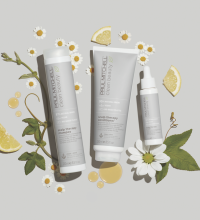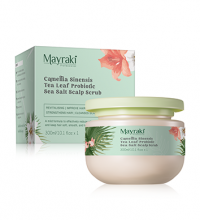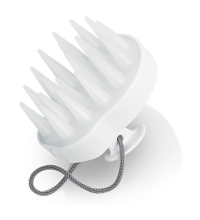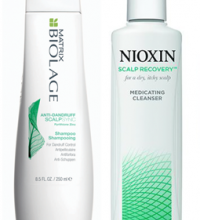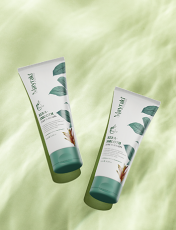
We’ve all had an itchy scalp from time to time, maybe even experiencing flakes. In many cases, it’s just a dry scalp that may be flaking, and in other cases, it could be dandruff, a fungal issue. However, sometimes this itch can signal that something more severe is happening. Especially when it’s accompanied by inflammation and scaly patches, which may be a condition known as psoriasis.
According to psoriasis.org, psoriasis is an immune-mediated disease that causes raised, red, scaly and sometimes thickened patches to appear on the skin. The condition typically affects the outside of the elbows, knees or scalp, though it can appear on any location.
When the head is affected by the condition, it's called scalp psoriasis. The primary symptoms of this annoying condition include thick and scaly patches of skin, redness, inflammation, itching, burning, and flaking. It can range from small, red bumps to thick plaques. Psoriasis of the scalp can also extend well below the hairline, causing red, itchy plaques on the forehead and down the back of the neck. This devastating skin ailment can flare up at any time but typically worsens during the late fall and winter months due to the cold, dry air outside and warm, equally dry air indoors.
Researchers believe that for a person to develop any form of psoriasis, they must have a combination of the genes that cause psoriasis as well as be exposed to specific external factors known as triggers. Psoriasis triggers are not universal; what may cause one person's psoriasis to become active, may not affect another. Established psoriasis triggers include stress, injury to the skin, some medications, infections, and even diet, weather, and some allergies. Psoriasis is also associated with other severe health conditions such as diabetes, heart disease, and depression.
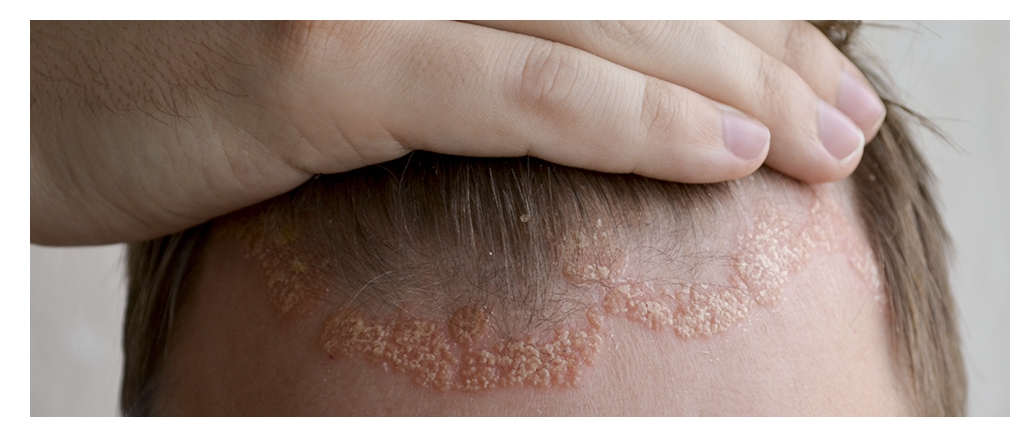
Treatment
There are many options for treating scalp psoriasis from over-the-counter shampoos to prescription strength topical steroid and non-steroid therapies.
For specialized over-the-counter shampoos, the most common ingredients are coal tar and salicylic acid, both of which are approved by the FDA for the treatment of psoriasis. These shampoos can help relieve itching, slow skin cell growth, and often work well for mild cases of scalp psoriasis. Over-the-counter shampoos for scalp psoriasis that are readily available include Denorex, Zetar, Neutrogena T/Gel, and D-Psoria, to name a few.
If a rash won't go away with an over-the-counter medication, it’s essential to contact a doctor so they can offer any number of prescription treatments. With these prescription-strength shampoos and topical treatments, the most common ingredients include calcitriol, tazarotene, and calcipotriol. Prescription topicals slow down or normalize excessive cell growth and reduce inflammation associated with psoriasis. They may or may not involve steroids.
Derived from the natural corticosteroid hormones produced by the adrenal glands, topical steroids are the most frequently used treatment for psoriasis. Corticosteroids have many essential functions in the body, including control of inflammatory responses.
For some people, oral or injected medications and phototherapy are needed to help control symptoms. The good news is that intensive research is being carried out to find better treatments for psoriasis. New treatments are regularly introduced to improve the condition for some people.
How to Treat
It should be noted that shampoos and other topical treatments work best if the plaques are removed prior to treatment, allowing the medication to penetrate the skin. Be sure to protect your ears and eyes when applying these shampoos and topical treatments.
When applying shampoos or topical treatments, gently part your hair and spread the lotion along the part. Keep the treatment on your scalp, as it requires contact with your skin, not your hair. Continue to part your hair in different ways and apply more of the shampoo or treatment. Try not to rub it onto your head as this can irritate your scalp and cause psoriasis to worsen. Once you've applied the product, allow to sit on your scalp as directed and then rinse thoroughly. Follow with a moisturizing conditioner after shampooing.
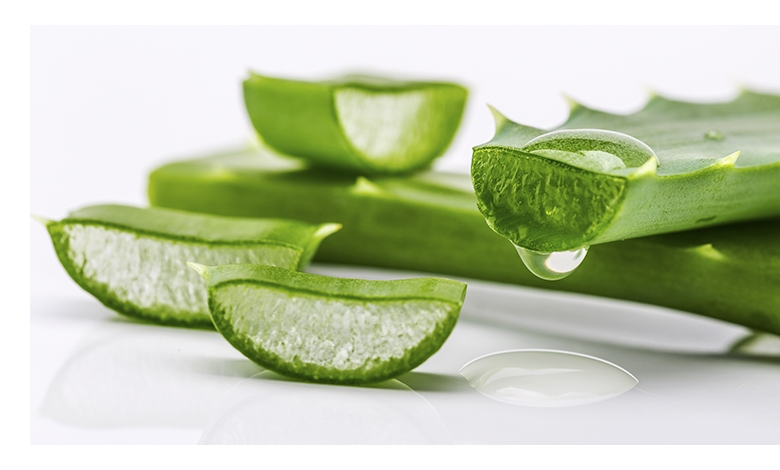
Lifestyle Adjustments
There are some lifestyle changes that you make to help relieve some of the significant symptoms of scalp psoriasis.
- Keep your scalp moist and well-hydrated. Apply aloe vera, coconut oil, or a dermatologist recommended moisturizing lotion while your scalp is damp. Wearing a shower cap after applying moisturizers can help improve their effectiveness but check the directions for over the counter products and/or discuss this option with your doctor first.
- Get rid of the plaques by applying a softener that contains salicylic acid. Follow the directions for the softener and then gently remove the excess skin with a brush or fine-tooth comb. Try not to scratch or pick the plaques as this can irritate your scalp or cause some hair loss.
- Limit the use of thermal styling tools. Hair dryers, curling or flat irons, even hot rollers can dry out your scalp and worsen your psoriasis.
- For itching, try shampoos that include menthol, over-the-counter oral antihistamines, or use cold packs on any bothersome areas. You can also ask your doctor to prescribe medication to help control the itchiness.
- Get to know what your triggers are and then work hard to avoid them. Triggers are different for each person but can include stress, injury to the skin, certain medications, infections such as strep throat, even diet or weather, and some allergies.
- Sometimes scalp psoriasis can become infected. Signs of infection include tenderness and crusting but can also include swollen lymph nodes. Call your doctor immediately if you experience any of these symptoms.
For more information about psoriasis including current research and clinical trials, please visit the National Psoriasis Foundation.

